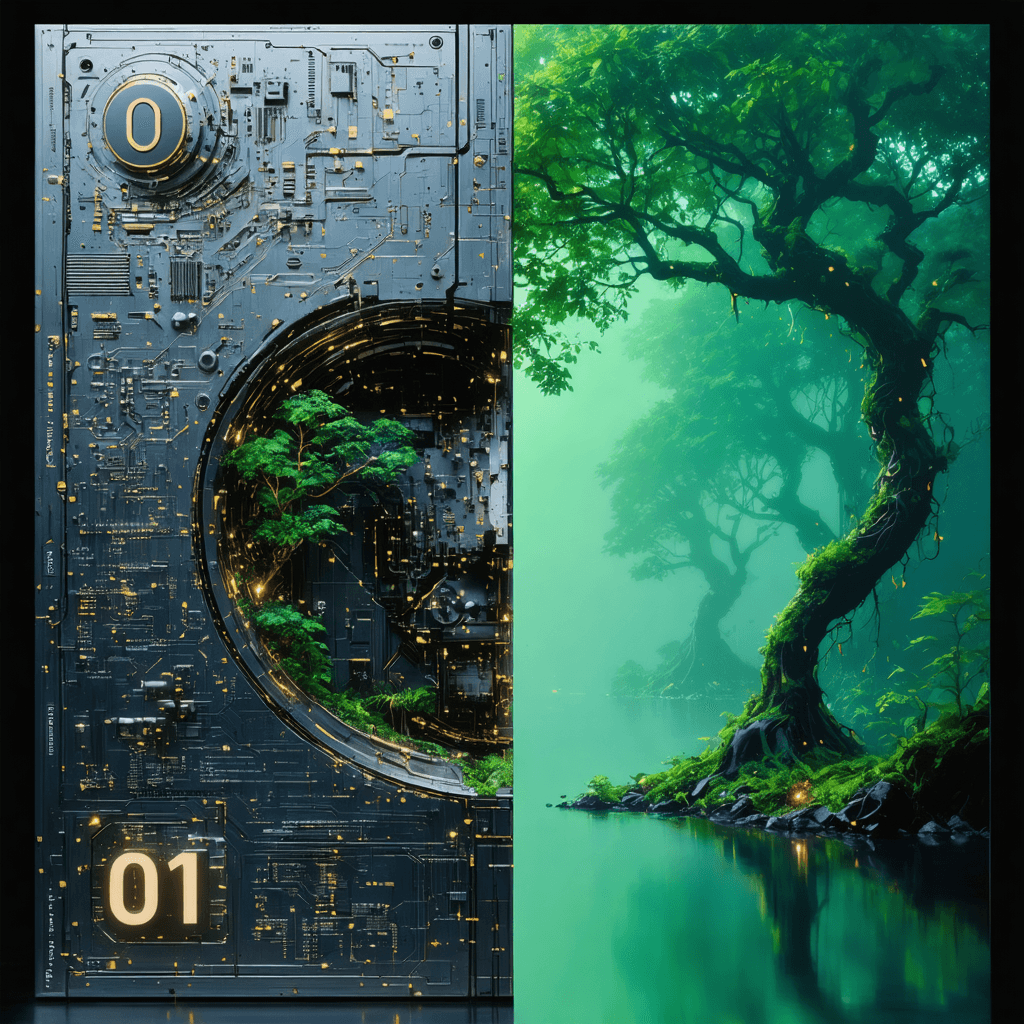Tech vs Nature: Hidden Costs of Stifling Innovation in the Race for Environmental Sustainability
In the rapidly evolving landscape of 2025, the intersection of technological innovation and environmental sustainability has become increasingly complex. While both are essential for our future, the relationship between these two forces often presents challenging trade-offs that deserve careful consideration.

The Innovation-Sustainability Paradox
The push for immediate environmental solutions has sometimes led to hasty regulations that inadvertently hamper technological progress. This creates what experts call the "innovation-sustainability paradox" – where short-term environmental gains might actually prevent the development of more effective long-term solutions.
Economic Implications
Recent data from the World Economic Forum suggests that companies face significant challenges balancing innovation investments with sustainability requirements. The manufacturing sector, in particular, has seen a 23% increase in compliance costs while attempting to maintain competitive R&D budgets.

The True Cost of Regulatory Barriers
Impact on Emerging Technologies
Many promising technologies face substantial regulatory hurdles that can delay their implementation by years. For instance:
- AI-driven energy optimization systems
- Advanced recycling technologies
- Carbon capture innovations
- Smart grid solutions
These delays not only affect technological progress but also postpone potential environmental benefits these innovations could deliver.
Finding the Balance
Smart Integration Strategies
Leading organizations are now adopting more nuanced approaches to balance innovation with sustainability:
- Parallel Development Tracks: Simultaneously pursuing both immediate environmental improvements and long-term technological solutions
- Flexible Regulatory Frameworks: Implementing adaptable policies that can evolve with technological capabilities
- Innovation Sandboxes: Creating controlled environments for testing new technologies while managing environmental impact
The Role of Digital Transformation
Digital technologies are proving crucial in bridging the gap between innovation and sustainability. According to recent industry reports, companies that successfully integrate digital solutions with sustainability initiatives see:
- 35% reduction in resource waste
- 42% improvement in energy efficiency
- 28% decrease in carbon emissions

Case Studies in Success
Maritime Industry Evolution
The maritime sector provides an excellent example of balanced progress. Recent innovations in ship design and fuel systems have achieved both environmental and operational benefits:
- Advanced hull designs reducing fuel consumption by 15%
- Hybrid propulsion systems cutting emissions while improving performance
- AI-powered route optimization reducing both time and environmental impact
Future Perspectives
Emerging Solutions
The next wave of innovations promises to further dissolve the apparent conflict between technology and sustainability:
- Biomimetic Technologies: Solutions inspired by natural processes
- Circular Economy Technologies: Advanced recycling and reuse systems
- Energy Storage Innovations: Next-generation battery technologies
- Smart Material Development: Self-repairing and adaptive materials
Recommendations for Progress
For Policymakers
- Develop flexible regulatory frameworks that encourage innovation
- Create incentives for sustainable technology development
- Establish clear metrics for measuring both environmental and technological progress
For Businesses
- Invest in long-term R&D while maintaining environmental responsibility
- Collaborate across sectors to share resources and knowledge
- Implement data-driven decision-making processes
The Path Forward
The key to resolving the tension between technology and environmental sustainability lies in recognizing that they are not opposing forces but complementary tools for building a better future. By taking a more balanced approach, we can harness the power of innovation to create truly sustainable solutions.
Ready to dive deeper into the intersection of technology and sustainability? Explore our comprehensive courses and resources at 01TEK. Our expert-led programs will help you navigate the complex landscape of sustainable innovation and prepare you for the challenges of tomorrow. Visit 01TEK's course catalog today to start your journey toward becoming a leader in sustainable technology.
Sources: [1] Smart Cities and Sustainable Development [2] WEF Manufacturing Transformation [3] Dassault Systèmes Sustainability Report [4] EU Maritime Transport Progress Report [5] Seagate Technology Infrastructure Report
Build your own dreams, or someone else will hire you to build theirs.
Farrah Gray, investor and motivational speaker



